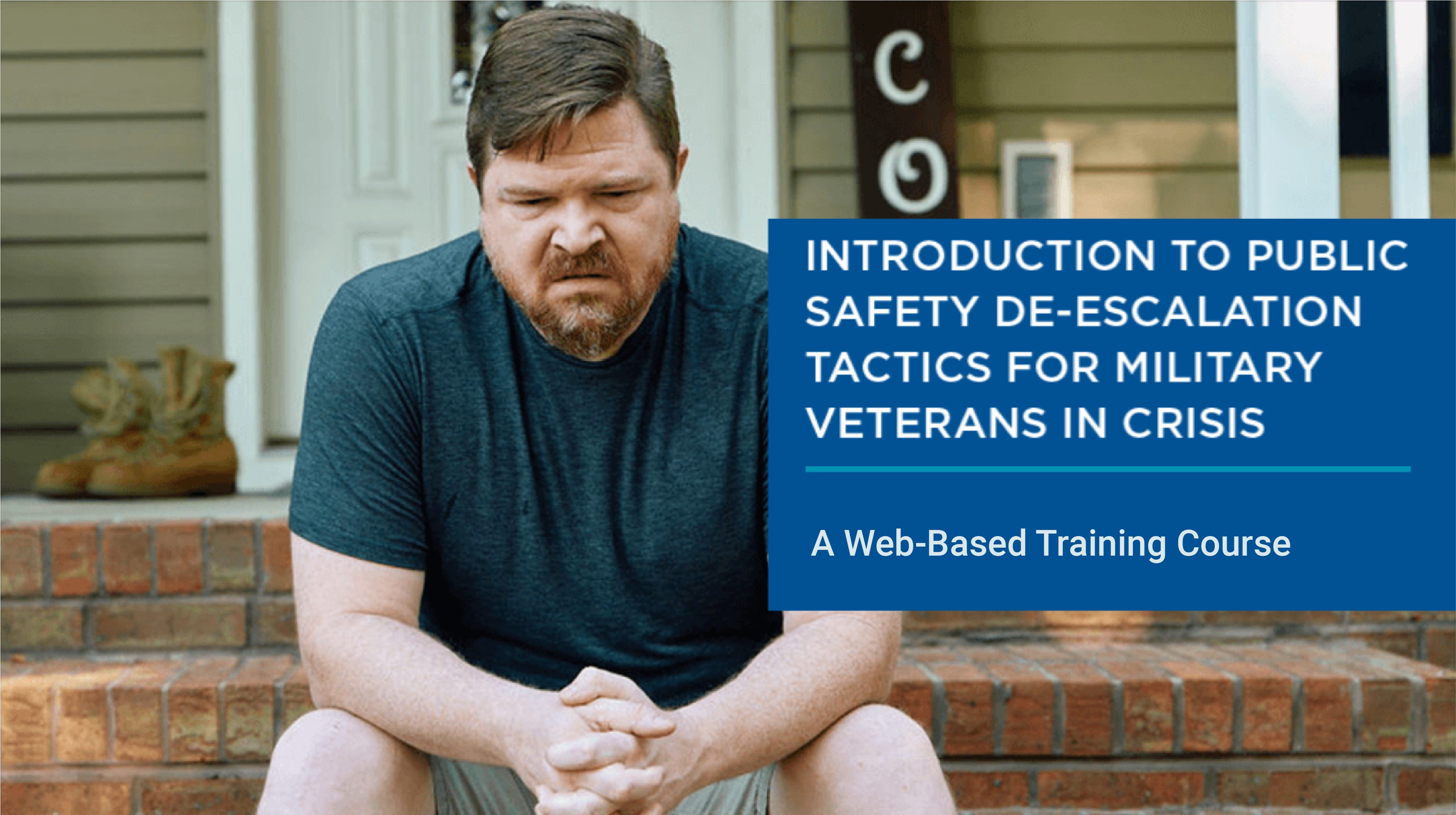Contact Us
To provide feedback on the Community Policing Dispatch, e-mail the editorial board at CPDispatch@usdoj.gov.
To obtain details on COPS Office programs, publications, and resources, contact the COPS Office Response Center at 800-421-6770 or AskCopsRC@usdoj.gov

U.S. Department of Justice
Office of Community Oriented Policing Services
Washington, DC 20530
As an increasing number of veterans come home to our communities deeply troubled by what they experienced in combat situations, local law enforcement faces some unusual, as well as dangerous, challenges.
Though most veterans transition back to civilian life without serious problems, some suffer from overwhelming anger, depression, and other symptoms of post-traumatic stress disorder (PTSD) or traumatic brain injury (TBI). Suffering from often hidden but nevertheless painful wounds to their mental health, these individuals can become violent or suicidal.
Field-Tested Techniques for Officer and Public Safety
 Law enforcement officers or deputies are usually the first responders to domestic violence, attempts at suicide, and other situations in which former warriors can become combative. An effective response that keeps everyone safe requires not only compassion, understanding, and respect for the service these men and women have given to our nation, but also the use of de-escalation techniques that have proven to work well with veterans in crisis.
Law enforcement officers or deputies are usually the first responders to domestic violence, attempts at suicide, and other situations in which former warriors can become combative. An effective response that keeps everyone safe requires not only compassion, understanding, and respect for the service these men and women have given to our nation, but also the use of de-escalation techniques that have proven to work well with veterans in crisis.
To teach these methods to police officers, sheriff’s deputies, and other first responders, the Law Enforcement Innovation Center (LEIC) of the University of Tennessee’s Institute for Public Service has developed an online training course called “Introduction to Public Safety De-escalation Tactics for Military Veterans in Crisis.” It is available on the COPS Office Training Portal at no charge.
Immersive, Interactive Scenario Instruction
Through two scenario-driven modules, participants will learn how to recognize the symptoms and behavior patterns of PTSD quickly, as well as how to equip themselves with verbal and physical de-escalation techniques for defusing a confrontation.
In addition to seeing de-escalation methods in realistic video scenarios in which they themselves can interact, participants receive instruction in active listening and rapport-building techniques, learn what things they should avoid saying, and learn procedures for maintaining their own safety as well as that of the veteran and the public at large.
 Module 1 covers topics such as the effect of wartime stressors on a veteran’s integration into civilian life, the effects of multiple deployments, common stress-related issues, manifestations of PTSD, and the stigma attached to psychological issues. Module 2 covers active listening techniques including listening for hooks, paraphrasing, emotional labeling, mirroring, and summarizing.
Module 1 covers topics such as the effect of wartime stressors on a veteran’s integration into civilian life, the effects of multiple deployments, common stress-related issues, manifestations of PTSD, and the stigma attached to psychological issues. Module 2 covers active listening techniques including listening for hooks, paraphrasing, emotional labeling, mirroring, and summarizing.
Convenient, Self-Paced Training for All First Responders
To make this training accessible to law enforcement and first responders in communities throughout our nation, LEIC designed De-Escalation Tactics as an online, self-paced course. In addition to allowing learners to complete their training on a schedule convenient to them, it saves the time and money involved in travelling for classroom instruction.
The course was developed by subject matter experts in the field of mental health with guidance from LEIC training specialists Greg Coker and Emily Miller. A retired lieutenant of the Knoxville (Tennessee) Police Department, Coker served on active duty in the Military Police Corps of the United States Army before beginning his law enforcement career. Miller is a Program Manager at the University of Tennessee who specializes in experiential learning.
After conducting two pilots of the course, there were many additional tips that were gathered from the field, which led to the development of a Supplemental Tip Sheet to productively engage with veteran in crisis. The Justice Involved Veterans Network provided additional input. The training also provides a list of additional resources for officers to offer veterans in crisis and their families.
Through De-Escalation Tactics training and the Tip Sheet, officers can gain a greater understanding of the mindset of veterans who suffer from PTSD or TBI. They will learn how to approach these individuals who have served their country with the respect and consideration they deserve while also protecting themselves with intervention techniques that reduce the need to use force, limit potential liability, and enhance the safety of all involved.
Subscribe to Email Updates
To sign up for monthly updates or to access your subscriber preferences, please enter your email address in the Subscribe box.






